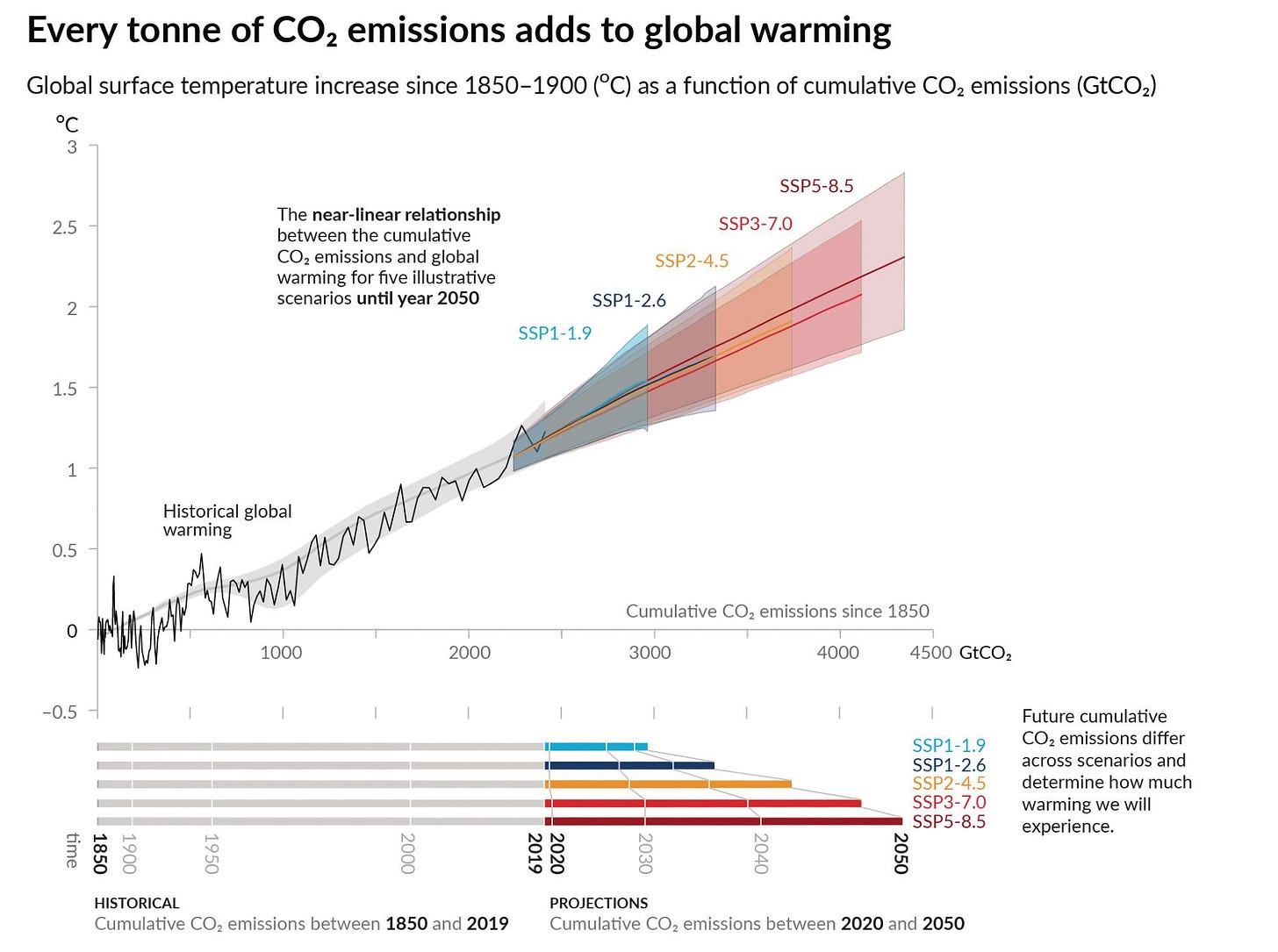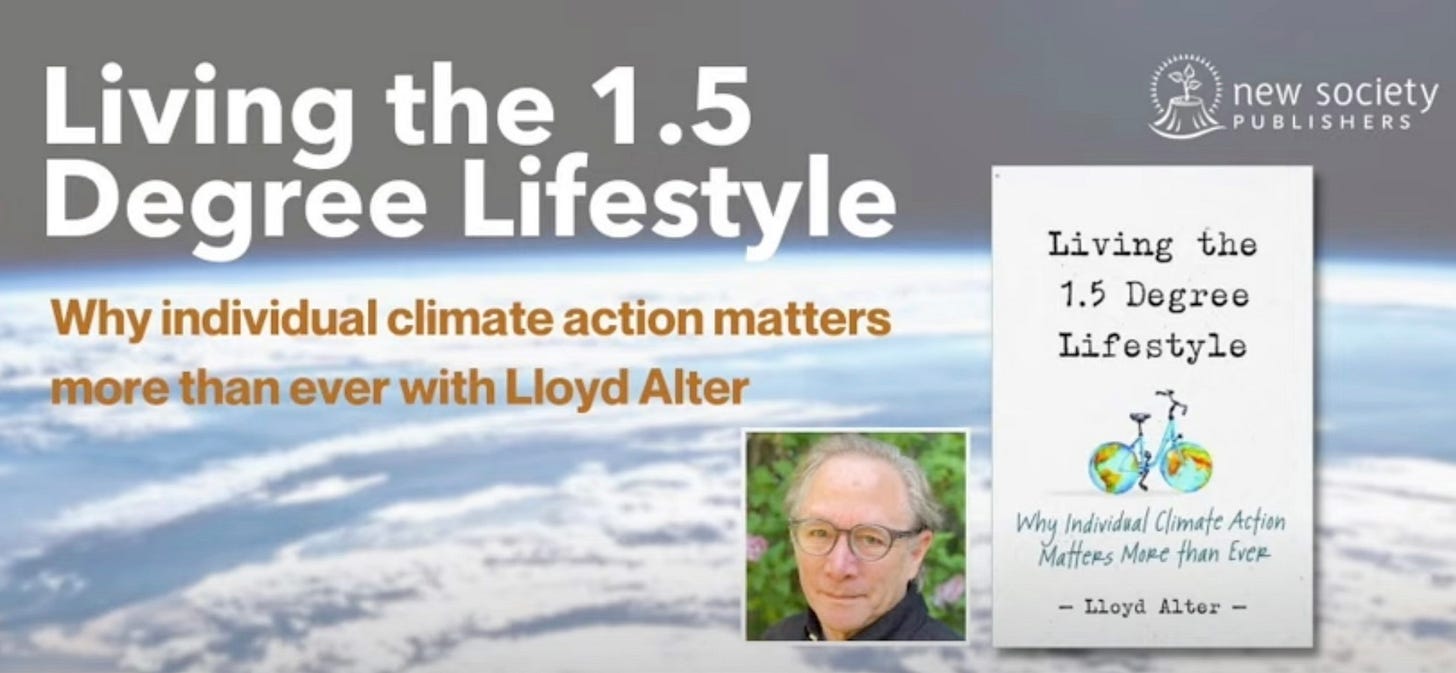In defence of the doomer David Suzuki
The scientist and broadcaster has offended many environmentalists. Again
I was cycling home last fall and was surprised to see David Suzuki in Toronto, out in front of the Christie Gardens seniors home, supporting seniors marching and rolling for climate action. I was impressed that at 88 years old, he was still out there, fighting the good fight.
Still challenging the conventional wisdom, the famous Canadian scientist and broadcaster has offended climate activists with an interview in iPolitics titled ‘It’s too late’: David Suzuki says the fight against climate change is lost. I don’t think the title is fair, and neither is much of the criticism.
I have been a fan of Suzuki since he started the Quirks and Quarks radio show in 1974. One of my earliest stories for Treehugger was about him; in April 2005, he offended about half of Canada when he wrote about “The Beauty of Wind Farms” in The New Scientist, republished here. He concluded:
“Our perception of beauty is shaped by our values and beliefs. Some people think wind turbines are ugly. I think smokestacks, smog, acid rain, coal-fired power plants and climate change are ugly. I think windmills are beautiful. They harness the wind’s power to supply us with heat and light. They provide local jobs. They help clean air and reduce climate change. And if one day I look out from my cabin porch and see a row of windmills spinning in the distance, I won’t curse them. I will praise them. It will mean we’re finally getting somewhere.”
Responding to complaints, he told the Globe and Mail, "Anything I say, whether it's positive or negative, is going to be held up by one group or another. If I had said windmills are terrible and they shouldn't be in any area that you're trying to conserve, who do you think would have been holding it up?"
That was twenty years ago. Today, the controversy is his claim in the iPolitics issue that we could have dealt with climate change had people done anything when they started talking about it in 1988.
“Now, it is too late.
I’ve never said this before to the media, but it’s too late. I say that because I go by science and Johan Rockström, the Swedish scientist who heads the Potsdam Institute, has defined nine planetary boundaries. These are constraints on how we live. As long as humans, like any other animal, live within those nine constraints, we can do it forever, and that includes the amount of carbon in the atmosphere, the pH of the oceans, the amount of available fresh water, the nitrogen cycle, etc.”
“There are nine planetary boundaries and we’ve only dealt with one of them — the ozone layer — and we think we’ve saved ourselves from that threat. But we passed the seventh boundary this year, and we’re in the extreme danger zone. Rockström says we have five years to get out of the danger zone. If we pass one boundary, we should be shitting our pants. We’ve passed seven!
Suzuki concludes that the recent USA election makes political change impossible, so “what we’ve got to do now is hunker down. The units of survival are going to be local communities.”
Climate activists are appalled at Suzuki’s doomerism. Jonathan Foley of Project Drawdown writes:
“My response to those who say it’s “too late” to address climate change and global environmental damage. It is NOT too late. As long as one tree is still standing, one whale is still swimming, and one child is still breathing it is not too late to protect something precious. Waving the white flag, giving up on them and on the future — while we still enjoyed a pretty good life — is a moral failure.”
Jonathan Tomkin of Rutherford University disagrees with Suzuki but then waffles:
“David Suzuki said it's "too late" to stop climate change. I wholeheartedly DISAGREE. My initial reaction was this is dangerous messaging. And I still think it is in its framing. Technically, he’s correct. Climate change is here and is already happening. But the message is wrong. What he got wrong is that all is not lost. The fight is not lost. Everything we do has the chance to minimise the damage. So we must keep fighting. We get to choose how much damage we allow.”
So Tomkin admits that technically, Suzuki is correct, but it’s the messaging? Then we have Ketan Joshi, who I admire greatly, but who is vociferous on LinkedIn:
“Every single moment of climate harm that occurs today is preventable. There is nothing forcing us to choke ourselves on coal, to kill our household with expensive fossil-fuelled cars (that get more expensive every time missiles fly across the middle east), to destabilise our grids with unreliable thermal power plants, to destroy swathes of carbon-sequestering land with health-wrecking meat and dairy.”
But we ARE continuing to do all these things. Deforestation for livestock continues. Pickup trucks dominate the market. Since David Suzuki first started fighting these causes (let’s say 1988, since he mentioned a conference then), carbon levels have risen from 351 ppm to 428 ppm. Who wouldn’t turn into a doomer with numbers like these.
Suzuki is upset with the USA government, but also with Alberta, noting “I’m saying, as an environmentalist, we have failed to shift the narrative and we are still caught up in the same legal, economic and political systems.” But Joshi continues:
“David Suzuki Foundation is wrong in a million different ways when they loudly declare that the fight is done, and that there's nothing left to do but continue making our lives harder and harder by burning fossil fuels and over-sizing agriculture.”
This interview was with David Suzuki personally and had nothing to do with the Foundation, which Suzuki is long retired from, so I don’t think Joshi should be blaming them. It is an important distinction.
“They are of course free to do whatever they like, but I will never stop fighting to win every single new increment in this fight, because I have a lot of life left to live, and so do the next generations.”
Ketan Joshi is 40, and likely does have a lot of life to live. David Suzuki is 89 and has been watching the deterioration of our world since before Joshi was born. At 72, I am closer to Suzuki than I am to Joshi, and my thinking about this issue is somewhere in the middle as well.
Ketan Joshi makes the same point I do in my writing and my lectures, using the same chart: Every kilogram, every ounce, every tonne of CO2 added to the atmosphere increases climate change and the breaching of every other planetary boundary. The problem is that us saying it doesn’t have any effect.
For 15 years, I have been teaching that artificial boundaries, such as 1.5 or 2 degrees, don’t matter; they just give people an excuse to push the problem down the road. NOW emissions matter. Every flight, every drive, every hamburger matters. For 15 years, I have been telling my students that as planners, interior designers, architects and other design professionals, they can make a difference. And every year for 15 years, it feels more like I am pissing up a rope, that it is performative and futile, that it makes no difference.
I am not giving up. I still write, I still teach. I am the perpetual cockeyed optimist about how we can beat this, because otherwise, what’s the point of my writing or teaching or living? But I can feel where David Suzuki is coming from. I think Ketan Joshi and Jonathan Foley are being too hard on him, but hey, they’re still kids.
Optimism and positivity are wonderful things, but we do have to face reality. We need a not necessarily happy medium. See Sorry, Doomers: Hannah Ritchie says it's Not the End of the World.
I wrote a chapter about doomerism in my book The Story of Upfront Carbon and will excerpt it here in my next post; watch this space.
Special offer!
I do not want to put up a paywall on this site, but it provides a meaningful portion of my income. So here’s a limited-time offer: I will send a signed copy of the print edition of “Living the 1.5 Lifestyle” to anyone in the USA or Canada who signs up for a one-year subscription (C$50, cheap at about US$35 ).







I would rather hear about this issue from an informed source like Dr. Suzuki than anyone who is unwilling to negotiate anything related to their biases views on the topic.
Obviously, it's too late to stop warming at 1.5°. But maybe not too late to stop at 2°? Or perhaps 3°? Or how about 4°? Every incremental bit of warming will have consequences. We might as well try to slow down the warming. Some day, even Republicans and their fellow travelers will be forced to admit that climate change is real. By then, it will almost certainly be too late to avoid major impacts. But we can eventually avoid even worse impacts. By the time we collectively wake up, Lloyd and I will be long dead, but that's no reason to give up and install a coal furnace like we had when I was a kid.